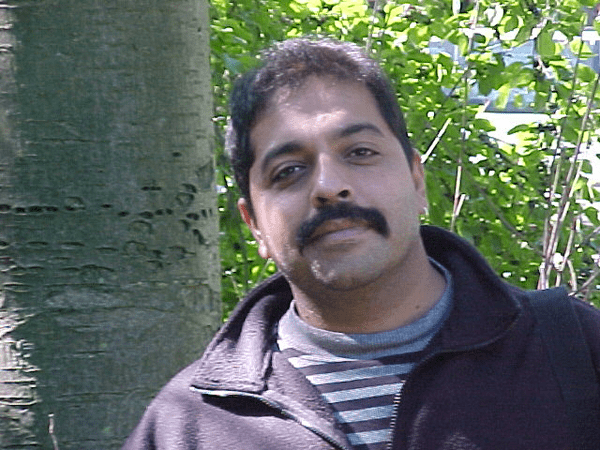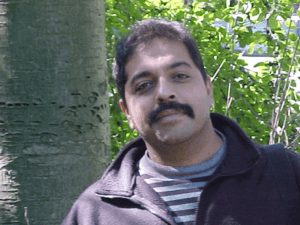Emerging Author of the Month: Sanjay Talreja

Diaspora Dialogues
June 3, 2013


Tell us about yourself.
I am a Toronto-based documentary film-maker, originally from India. I write, direct and edit documentaries and have also recently worked in independent drama projects, including writing scripts for features and shorts. My main interest is in social and political films—broadly defined. I’ve also taught film-related classes at various institutions.
Tell us about the piece you’ve decided to share.
I wrote Homecoming as a creative assignment for a class I took in film school in the US in 1988. It was a short story that came out of my own interests based on the lives of older people, particularly how they were almost invisible. If they were mentioned at all, older people appeared vague and ghostly in the already marginalised stories of immigrants—the edges of the margins, as it were.
Perhaps because I was close to my grandfather, I sensed that something valuable was missing. It seemed to me then, as it does to this day, that older immigrants come to foreign countries with the bulk of their experience and history behind them. Having gone through already full lives in their home countries, they are much more ambiguous about moving to a new country at this life stage; yet, once they are here, they are expected to just get on with it. It is as if the past does not matter. This is what I wanted to explore in this story.
Over the years, Homecoming went through many changes. I decided to write a feature length script out of it but felt that I needed to write a longer story in order to better know the characters and their situations. It went through different incarnations: a 55 page story, a 120 feature length script, then, a 12 page condensed short story and finally, now it has become a novella. I constantly seek to weave in current events in order to make the story more relevant.
When and why did you realize you had a passion for writing?
I can’t think of a time when I haven’t wanted to write. I’ve been writing scripts and short stories since my late teens. It always felt, however, that while my scripts were for larger public presentations, my stories were privately written, only for myself. I’ve filed a whole drawer full of mostly incomplete fictional work, never thinking that I’d like to have them finished or published. It was only recently that I decided to try to get them out into the world.
What pieces of writing/authors have had the greatest impact on you?
I have tremendous respect for authors who don’t consciously seek out to write something as `grand’ as literature. These authors write for wider audiences but are not writing pulp and continue to be interested in writing a novel without compromising their craft or what they are trying to say. Anton Chekhov, Munshi Premchand, Amitav Ghosh, R.K. Narayan, Somerset Maugham, Marquez, Orhan Pamuk, Roberto Bolaño, Vikram Seth . . . the list could go on and on.
Of late, I’ve enjoyed many of the Scandinavian crime and thrillers. Those writers make the crime and the detective form the core of the novel. Yet, context and history is so skillfully woven that as readers, we not only learn about how and if the crime is solved, but find ourselves learning about a constantly evolving, politically charged world that the characters find themselves in.
What kind of writer do you aspire to be?
For me, it is ordinary people who are the most interesting. How they come to be where they are, how they are simultaneously victims of larger events and are yet not crushed or fully formed by those forces—it is that world I want to explore.
Their personal tales and fables, their voices, desires, ambivalence, traits and idiosyncracies . . . amidst current events, history, are all part of what interests me. At the same time, I do not want my writing to be ponderous and heavy. I want to write stories where a discerning smile appears on the reader’s face, and the sting in the tail further enhances the pleasure.
How and when do you find time to write?
I work as an independent film-maker and editor and go through busy periods and also through slow times. I typically write when things are a little quiet on the film front and where I am waiting to hear from broadcasters, commissioning editors or conducting research. But I also know that if I don’t write for a few days, my fingers start itching and I get a little irritable. To keep my juices flowing, I always write short notes and ideas in a book.
